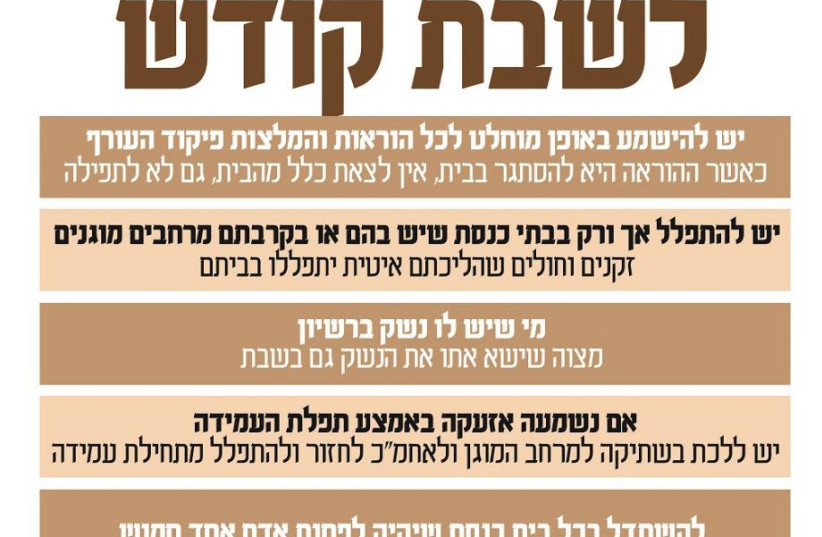The Rabbinate released instructions on Thursday for observing Shabbat within the context of the ongoing war against Hamas, signed by both chief rabbis, David Lau and Yitzhak Yosef.
The instructions provide guidance on how best to avoid breaking Shabbat without putting oneself or others in danger due to the war.
Several issues arise from strictly keeping Shabbat during wartime, from carrying weapons to listening for updates about the situation, it is important that the religious authorities provide guidance on how best to obey God while maintaining readiness during wartime.
Some laws can be altered or followed differently due to the Halachic principle of "pikuach nefesh", which prioritizes saving lives over following the rules strictly.

The instructions:
- One should only pray in synagogues that have protected spaces in or near them.
- The elderly and sick who walk too slowly should pray at home.
- If you have a weapon license, it is a mitzvah to carry your weapon, also during Shabbat.
- If sirens are heard in the middle of the Amidah, one must go silently to the protected area and return to prayer from the beginning of the Amidah.
- Try to have one armed person in every synagogue.
- Every synagogue must have a telephone available for use on Shabbat, in case it is needed. You can keep a cell phone on vibrate in your pocket.
- You must leave a radio running quietly in the background to keep up to date with updates from the Home Front Command."
The rabbis concluded that "all instructions and recommendations of the Home Front Command must be strictly obeyed, when you are instructed to shut yourself in at home. Do not leave the house at all, not even for prayer."
The instructions are signed by Ashkenazi Chief Rabbi David Lau and Sephardi Chief Rabbi Yitzhak Yosef.
